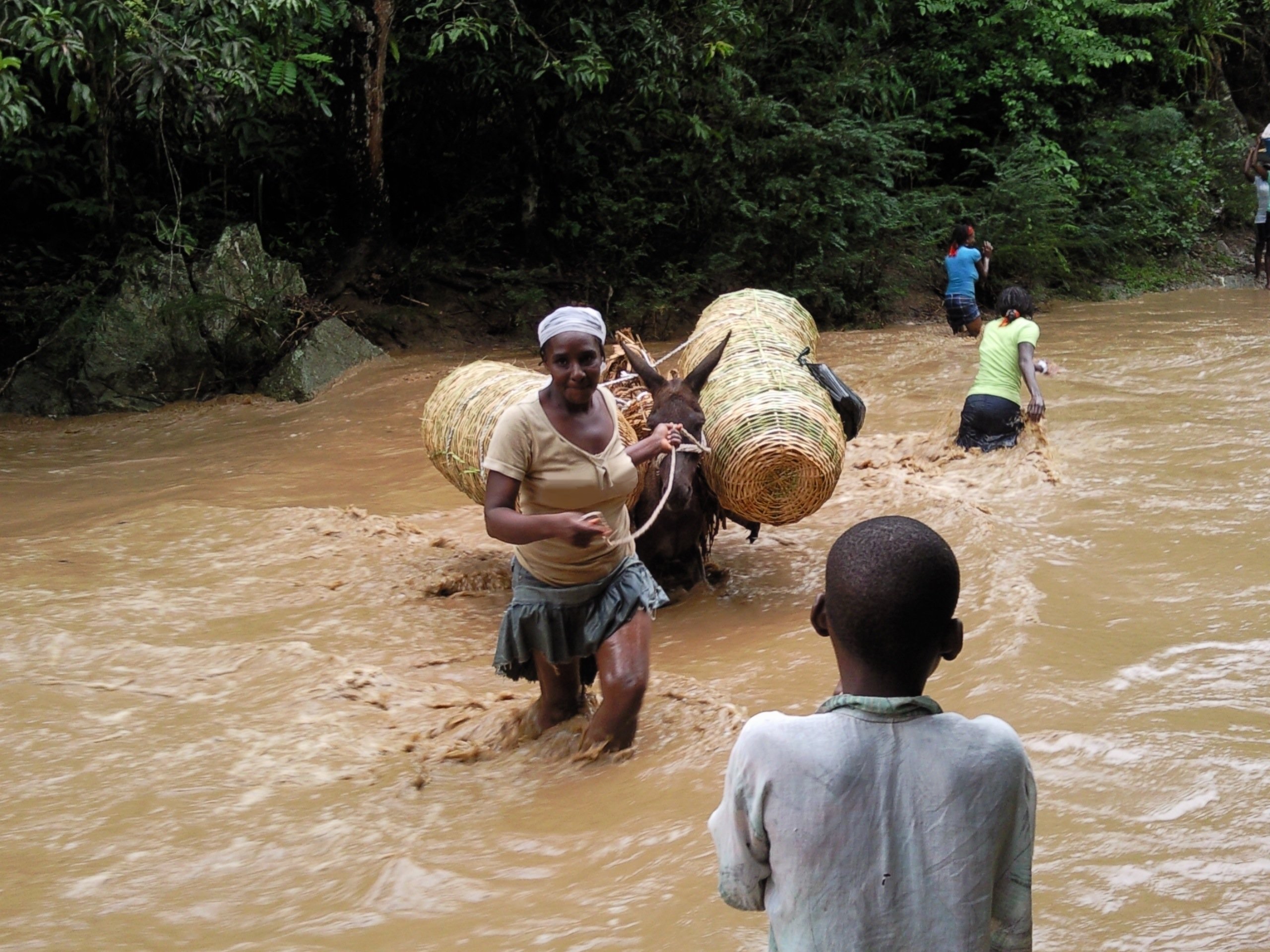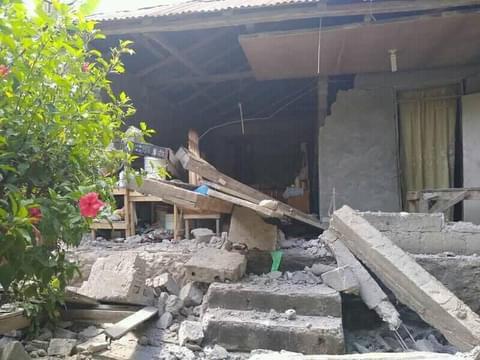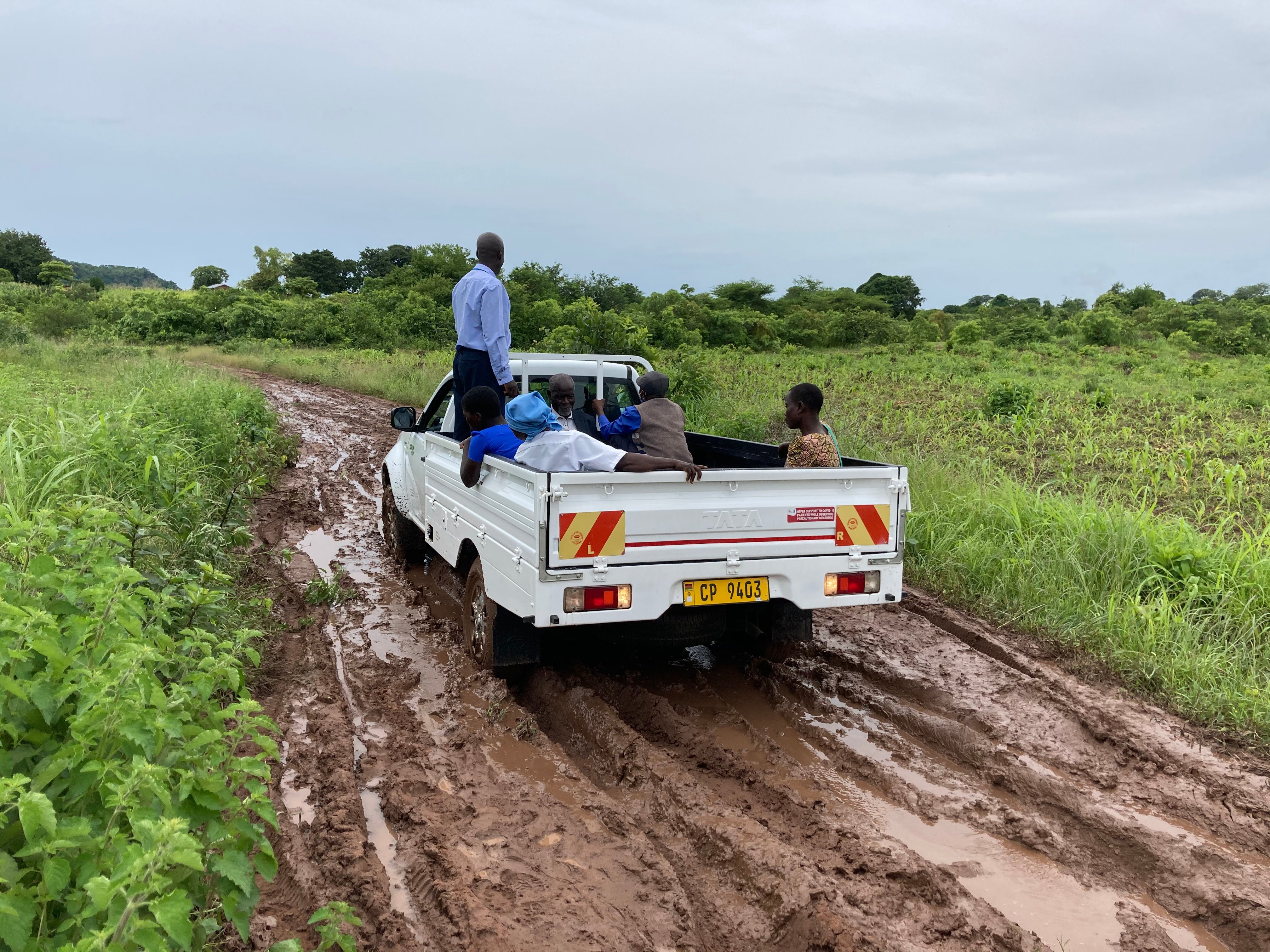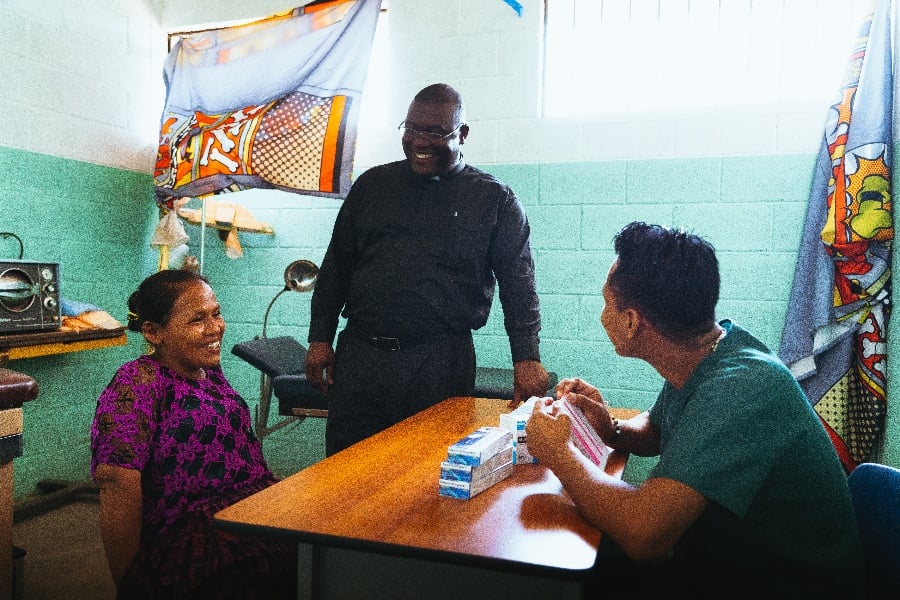
Earlier this year, when the parish priest of Nuestra Señora de Altagracia of Pedernales in the diocese of Barahona in the Dominican Republic left for a month-long vacation in Puerto Rico, he invited some priests to celebrate mass in his parish.
One Sunday, Fr. Jose (the assistant parish priest of San Antonio de Padua parish) and I made the three-hour journey from Barahona to Pedernales to celebrate the afternoon mass. The parishioners were so happy to see two new young visiting priests in their parish!
During a walk around the parish following the mass, many people brought to our attention a situation involving undocumented Haitians who had voluntarily returned to Haiti. With such close proximity of Pedernales to the border with Haiti—just a 15-minute walk from the parish—this situation was much on the minds of the parishioners.
During supper, the topic of our conversation returned again to these undocumented Haitians. Fr. Jose, one Haitian seminarian, two religious sisters and I decided to visit them the next day after breakfast.
The situation of the undocumented Haitians
During breakfast, I told my companions that I had not brought with me any documents to present so that I could cross the border. However, they assured me that this would not be a problem for a priest visiting these people who had taken refuge in Anse-á-Pitre, the town across the border from Pedernales.
After breakfast, we crossed the border and found out for ourselves the terrible circumstances of these undocumented Haitians. Their houses were made of twigs, carton boxes and plastic bags. The heat was unbearable. Every time the wind blew, it covered the refugee camp in dust.
Without any potable water or food in the area, these people needed to walk upwards of a mile to look for it.
When we arrived, the first question that I asked them was, “Why did you come here voluntarily?” They replied to me that the government of Haiti had promised them decent housing and stable work. At least, this was the rumour that had encouraged them to leave Dominican Republic.
After a month in this area, the governments of both Dominican Republic and Haiti still had not responded to the pleas of these people for help.
What might happen to these people after several more months passed? All of them were prone to sickness, especially the children who were running around the camp and inevitably breathing the dust carried along by the strong wind.
My heart went out to these people as I saw them living in such miserable conditions. I reflected on the situation of our parish San Martin de Porres where Haitians and Dominicans of Haitian descent are thriving. Many of them never acquired the necessary documents for their regularization as strangers in this country.
At the time of our visit, there were more than 3,000 Haitians living under these conditions in this area, with more arriving every day in response to the rumour of opportunities in Haiti that continued to spread in Dominican Republic.
Filled with false hopes and empty promises, they were victims of the injustices in our society. These people believed that their government would save them, and so they entrusted their lives and futures to the government.
Signing documents was not important for them; their only thought was the greener pastures of their homeland. However, the reality was completely opposite to this—their life was becoming more difficult, and they were homeless.
Taking a glance at Pope Francis’ encyclical, Laudato Si
In the opening chapter of Pope Francis’ encyclical, Laudato Si, he asks, “What is happening in our common home?” In our common home here in Dominican Republic, many people, especially our undocumented Haitian brothers and sisters, are suffering. Many of them are living in fear of deportation.
Every day, in our parish of St. Martin de Porres, we see people lining up to ask for baptismal and non-baptismal letters to be used for acquiring documents in Dominican Republic. In one of the Basic Ecclesial meetings in the community of Batey 9, where Haitians predominate, I asked, “How many of you have acquired the cedula (identification card) of the Dominican Republic?” Of the 42 persons present in the meeting, only three raised their hands.
I related my experience in Anse-á-Pitre, Haiti, to them and alerted them of the strategy of luring the undocumented Haitians to return to their homeland.
It is our task as their pastors to help to reduce their burden in facing this problem of deportation. Every time we visit the community, it is necessary for us to explain the issue of the undocumented Haitians in the country since many of them cannot read and write.
Later in Laudato Si Pope Francis addresses the exact situation of the undocumented Haitians:
There has been a tragic rise in the number of migrants seeking to flee from the growing poverty caused by environmental degradation. They are not recognized by international convention as refugees; they bear the loss of the lives they have left behind, without enjoying any legal protection whatsoever. Sadly, there is a widespread indifference to such suffering, which is even now taking place throughout our world. Our lack of response to these tragedies involving our brothers and sisters points to the loss of the sense of responsibility for our fellow men and women upon which all civil society is founded. (#25)
After the terrifying earthquake in Haiti in 2010, many fled to seek refuge in Dominican Republic. However, they did not even find a better place to live. Each day, they were living in fear.
Human rights violations were rampant in their area. Undocumented Haitians were being picked up along the road and driven back across the border without due process of law.
In a meeting in February 2015, Msgr. Rafael Nuñez, bishop of the diocese of Barahona, along with the priests in the diocese, issued a letter that denounced such attacks and the illegal deportation of persons who were considered strangers, in violation of the law and the plan of national regularization.
In it, they called upon local authorities, national migration authorities and militaries to stop this illegal deportation, pointing out that deportation only divides families, with mothers and fathers repatriated while children remain helpless in Dominican Republic.
They also reminded all of the universal call to respect human dignity that follows from the gospel of Christ. We need to promote and defend all human beings, and particularly the poor people around us who need protection and a safe haven. Since the letter was first issued, it has been read daily on the local radio station of the diocese of Barahona.
Many of the undocumented Haitians living in the different communities within the jurisdiction of our parish St. Martin de Porres left Haiti several years ago in search of a greener pasture in Dominican Republic. However, without a cedula, they could not find decent work.
Some of them worked illegally at a low wage. Many of them found a vacant piece of land around the sugarcane plantation where they could grow their crops illegally. Since they are within the jurisdiction of our parish, we attend to their needs by helping them obtain legal documents.
To those who lack the funds necessary both to meet their daily needs and to obtain legal papers, we stand with them until their circumstances change. We do not abandon them or condone them for being in this situation. They have suffered so much while seeking food to fill their empty stomachs and escape from their miserable situation.
The issues around migration pose challenges to societies, political institutions and churches.
With your prayers, we ask our Lord to convince the government leaders of Haiti to fulfil their promises to improve the life of these undocumented Haitians. For the sake of the estimated 500,000 Haitians who are at risk of deportation with the new law of migrants in Dominican Republic, we also pray that the government of the Dominican Republic will stop deportation in favor of legal processes.
We entreat the good Lord to continue to touch the hearts of the leaders both in Haiti and Dominican Republic so that they can realize their sense of responsibility in the midst of these people.








